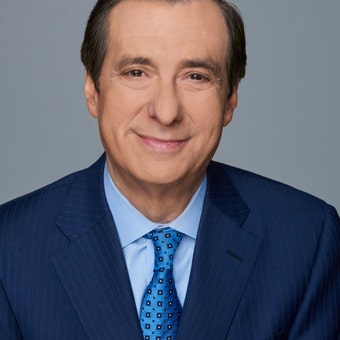Pompeo reacts to withdrawal of US troops from Afghanistan by Sept. 11
Former Secretary of State and Fox News contributor Mike Pompeo says 'reducing our footprint in Afghanistan' is 'the right thing to do,' but stresses how tactics, decisions, timing, and execution matter.
The question facing the new president was this: Is 20 years enough?
Is two decades of American troops being stationed in Afghanistan a long enough period to justify an endlessly delayed pullout—or is that too risky?
President Biden has come down firmly against "endless wars," ordering the remaining U.S. contingent out by the symbolic date of Sept. 11.
And you know who won’t be criticizing him? Donald Trump, who cut the deal with the Taliban that was supposed to have led to a withdrawal by next month.
I suspect this will be a popular move with many Americans who have been suffering from war fatigue. But it was entirely predictable that it would come under fire by Hill hawks and the Washington foreign policy establishment.
Biden said yesterday that "we went to Afghanistan because of a horrific attack that happened 20 years ago. That cannot explain why we should remain there in 2021."
I share the concern that soon after the U.S. pulls out the remaining 3,500 troops, the weak Afghan government will collapse and the Taliban will again be running the country. But if we couldn’t put the Kabul regime on a solid footing after spending $2 trillion and cycling in hundreds of thousands of troops, why does anyone believe things will change in the near future? And why is it an American responsibility to prop up one side in a civil war?
J&J VACCINE ‘PAUSE,’ CRITICIZED BY TRUMP, DRAWS FLAK AS POSSIBLE OVERREACTION
David Ignatius, a Washington Post columnist who often reflects establishment views, says military officials "share Biden’s desire to get the hell out" but believe nothing is worse than "remaining in what seems an unwinnable stalemate is pulling out troops — and then having to go back in…
"And if Biden was right about Afghanistan 10 years ago, he was dead wrong about getting out of Iraq, which he also strongly advocated.
That’s the awful danger of this decision. Sometimes cutting the knot and removing U.S. troops opens the way for peace; more often, in recent years, it has been a prelude to greater bloodshed.
David Sanger, the veteran foreign policy scribe for the New York Times, says the move is part of Biden’s version of "America First," the Trumpian doctrine—and has its roots in Biden’s tenure as VP:
"Time and again during the Obama administration, Mr. Biden lost arguments to reduce the American presence to a minimal counterterrorism force. But after less than three months as president, Mr. Biden came to the determination that only a full withdrawal — with no link to political conditions on the ground — would wrench America’s attention away from the conflict of the past two decades in favor of the very different kinds he expects in the next two."
Sanger acknowledges the risks—he invokes the 1975 fall of Saigon—but says Biden is determined to rebuild the American economy and compete more effectively against China.
Not surprisingly, Lindsey Graham called Biden’s decision "dumber than dirt and devilishly dangerous." But it was his golfing buddy, Donald Trump, who set the wheels in motion. After all, the Soviets were mired there for a decade.
SUBSCRIBE TO HOWIE'S MEDIA BUZZMETER PODCAST, A RIFF OF THE DAY'S HOTTEST STORIES
The main reason anyone in America cares about the Afghan struggles is that 9/11 reminds us of its role as a staging ground for Osama bin Laden’s terrorist attacks. But he’s dead, al-Qaeda is weakened, and U.S. intelligence believes there is a greater threat in Africa and elsewhere.It has always been harder for Democrats to pull back on military spending or military action, because of the "who lost China" syndrome. If the Taliban triumphs, Biden will take more than his share of slings and arrows.
But Trump, in a strange way, has given him political cover to declare the war over.
After the loss of South Vietnam, a common refrain was that America shouldn’t try to be the world’s policeman. After the human cost of Iraq and Afghanistan, that phrase resonates more than ever. But it took Biden to pull the trigger.










































